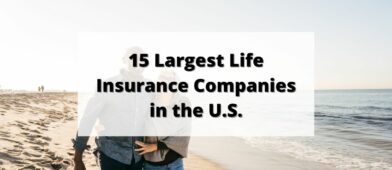Years ago, when we had a lot of friends living in downtown Baltimore, they’d routinely get their cars broken into.
It got so bad for one of my friends that she left her car unlocked with a note telling potential thieves that it was unlocked (and empty). It was cheaper than replacing broken windows all the time.
Now before you think this is a post trashing Baltimore, or cities in general, it isn’t. Baltimore is a great city with a rich history and strong personality.
But like anywhere with a lot of people, there’s going to be crime. That’s just life.
And this type of crime happens everywhere. We live near a neighborhood with million-dollar rowhomes (which itself boggles my mind!) and every few months, people complain in a Facebook group about people breaking into cars.
Oftentimes, these are crimes of opportunity. Individuals drive through a neighborhood, peek into car windows for valuables, and break in if you see anything worth taking. No one is breaking into homes, no one is stealing the cars – they’re just trying doors and taking things. They often don’t even break the glass, they just tug on some door handles.
When it happened for the first time in our circle of friends, we all assumed it was covered by auto insurance. It turns out possessions inside the vehicle are covered by your homeowners or renter’s insurance. Auto insurance only covers damage to the car, such as a broken window.
Sadly, many of us didn’t have renter’s insurance, myself included. Some of us didn’t think we needed it. To be perfectly honest, I didn’t even know it was a thing!
But it is.
And if you’re a renter, you need it.
I want to share a little anecdote from my friend who owns a rental that recently flooded. His tenant texted him to say that the place was flooding with sewage. Fortunately, his tenant had renter’s insurance and it paid for “a place for the tenant to stay (this includes hotel and meals), replaced all of the personal belongings (everything from the couch to a new tablet), and covered the actual damages that were caused through no fault of the tenant.” As you can see, renter’s insurance is crucial. My friend’s insurance would not have covered the renter.
Here are 5 myths about renter’s insurance:
Table of Contents
Myth #1: It’s Complicated
Renter’s insurance is a lot like homeowner’s insurance except it doesn’t cover the residential structure (the dwelling). That’s the responsibility of its owner (your landlord) and one of the reasons why homeowner’s and landlord insurance is more inexpensive.
Renter’s insurance has three key parts:
- Property insurance covers any damage or loss of your personal property and possessions.
- Liability insurance offers liability protection if someone gets hurt on the property, depending on the circumstances and who is at fault (it’s either you or the landlord’s insurance covering it).
- Temporary/additional living expenses reimburses you for alternative living arrangements if your current one is uninhabitable. If something happens to the rental and you can’t live there, insurance will pay for a hotel.
Like any other insurance, you’ll have a deductible and there will be exclusions.
Myth #2: It Is Expensive
It’s not expensive.
The National Association of Insurance Commissioners estimates that most renter’s insurance premiums cost only $15 – $30 a month. Lemonade, a renter’s and home insurance startup, estimates some people can get insurance as low as $5 a month. (see our full review of Lemonade for more on what they do)
In other words, the cost of renter’s insurance is extremely low and you better have a very good reason for not having it. I can understand if it cost a hundred dollars a month. Or even $50 a month. That’s a big dent in any budget. But at only $15 – $30, or as low as $5, it doesn’t make sense to skip it for the savings.
Myth #3: You’ll Never Need It
If you’re lucky!
Like many insurances, you will spend 99.9% of the time never needing it. Maybe your entire life, if you’re lucky, but that’s what insurance is for. Insurance is for protecting you from the catastrophic.
I’ve been a homeowner for 13+ years and it was only this past winter that we ever made a claim. But it was a doozy (burst pipe) of a claim that protected our butts to the tune of five figures.
When you live in a place by yourself, you can control a lot of the risks. When you are living other people (roommates) or living in a structure with others (an apartment complex), you can’t do that. You can’t double check that your neighbors didn’t put something in the oven and then leave the building. You don’t know how old the water pipes are in your building and when one might break. And you don’t know if some fool upstairs left a space heater on and went to work.
Those are all things you can’t control, no matter how careful you are, and so the risk something happens goes up.
And since you probably don’t study accident and crime stats (before I wrote this, neither did I), you might be shocked to learn that the risk was already relatively high.
The U.S. Fire Administration maintains statistics on this but the number of residential fires is always around 360,000 – 390,000 fires a year (2003 – 2016). The total dollar amount of loss is always around $7 – $9 billion. The causes are even scarier. A small percentage are intentional (4%) but most are the result of cooking (50%). (download the data yourself to see)
If fire stats don’t scare you, how about crime statistics? The FBI keeps detailed data on crime and you can download spreadsheets that will make it hard to sleep at night no matter where you live.
I will spare you the numbers but you can see them for yourself. 🙂
Myth #4: Your Roommate/Landlord Has It
Your landlord has landlord insurance and that covers the property and liability insurance. Property insurance covers the dwelling, other structures, and personal property used to service the rental like a lawnmower. It doesn’t cover your stuff. The liability insurance covers them for liability if the landlord is responsible, like failing to maintain something on the property. It doesn’t cover your liability.
With roommates, your roommate’s renter’s insurance may or may not cover you. Then there’s the issue of deductibles, who is responsible for what, and other headaches. What if you both lose all your possessions in a fire, how do you split the deductible? What if your stuff is more valuable? Those are questions you need to settle now and it might be easier just to get your own coverage.
Myth #5: You Don’t Have Much Stuff
If you truly have nothing of value, maybe renter’s insurance isn’t a priority. But if you take an inventory of your possessions, it doesn’t take long for it to add up.
Do you have a computer? Smartphone? TV? Jewelry? Appliances? Furniture?
You will be surprised if you add it all up. And even if it isn’t a high dollar amount, would you be able to come up with that amount to replace your items in case something happened? It could put a big dent, or completely wipe out, your emergency fund.
Self-insurance can be a good idea if you can save a lot on insurance premiums. With renter’s insurance costing as little as $5 per month, you don’t save much by doing it yourself.
Where Should You Get It?
Since it’s so cheap across the board, check with any insurance company you’re already working with.
If you don’t have any other insurance, like auto insurance, two companies I recommend checking with are Lemonade and Ladder. They are among the best renters insurance companies.
You can get a quote through both to see which one is cheaper but neither will steer you wrong.




It amazes me how many renters don’t have rental insurance. As you point out, it’s not expensive! The peace of mind is worth every penny. I’ve had State Farm for years, but I’ll definitely check out Lemonade and Policy Genius. Thanks for sharing!
After I sent that email, a few friends replied telling me they never had it. They were lucky that nothing significantly bad happened to them!
OMG! I have lived in a house for 24 years(it was new back then). My mother lived in her house for 56 years. Never used house insurance. There have been 3 fires in my town(I think 2 were deliberately started for the insurance money). I think you really have to figure out where you live and the circumstances. To me it would be much cheaper if I didn’t have to pay insurance and I could invest that money myself for the past 24 years. I own a condo in another part of the country. I will never buy insurance for… Read more »
Insurance is something you get and hope you never need.